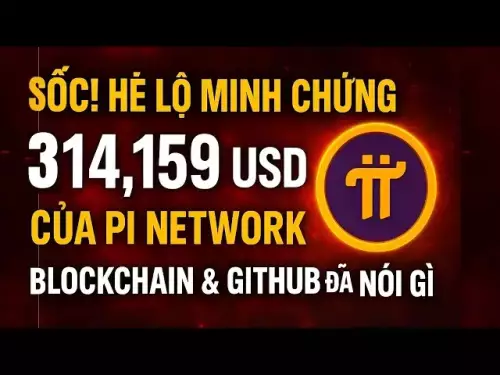 |
|
 |
|
 |
|
 |
|
 |
|
 |
|
 |
|
 |
|
 |
|
 |
|
 |
|
 |
|
 |
|
 |
|
 |
|
Cryptocurrency News Articles
Swiss Banks Embrace Blockchain: Deposit Tokens Usher in a New Era
Sep 23, 2025 at 05:22 pm
Swiss banks are leading the charge in blockchain innovation with deposit tokens, paving the way for more efficient and secure financial services. Here's the lowdown.

Alright, folks, let's dive into something seriously cool happening in the world of finance: Swiss banks and blockchain. Yeah, you heard right. Those famously discreet institutions are getting all cozy with deposit tokens, and it's kind of a big deal. Think of it as a digital handshake between traditional banking and the future of finance. It's about time, ain't it?
Swiss Banks, Blockchain, and Deposit Tokens: The Perfect Trio?
So, what's the buzz? Major players like PostFinance, Sygnum Bank, and UBS, under the Swiss Bankers Association (SBA), have successfully completed a proof of concept for deposit tokens. This means they've figured out how to make legally binding interbank payments on a public blockchain using good ol' bank deposits. This is not just theoretical; it's a real-world application that could change how we move money around.
Why Should You Care About Tokenized Deposits?
Tokenized deposits are traditional bank deposits transformed into digital tokens usable on a blockchain, kinda like digital cash. The Swiss solution allows these tokens to move freely between different banks. Imagine sending money from your PostFinance account to your buddy's UBS account using blockchain. Fast, secure, and transparent – that’s the promise.
The Key Benefits and Use Cases
Why are Swiss banks so excited? Here’s the deal:
- Efficiency: Payments can be processed instantly and definitively on a shared infrastructure.
- Automation: Smart contracts enable conditional payments, reducing risks and speeding up complex transactions. Think securities trading, insurance settlements, and even machine-to-machine transactions.
- Innovation: New digital services become possible, offering customers fast, secure, and transparent payment processes.
The proof of concept tested interbank payments and escrow-like exchanges for tokenized assets, all automated via smart contracts. The results? A resounding success. Deposit tokens can function across banks on a public blockchain while meeting legal and regulatory standards. That's a win-win.
Challenges and the Road Ahead
Of course, it’s not all sunshine and roses. Scaling up this technology will require some serious design adjustments and cooperation. We're talking about getting other banks, infrastructure providers, and authorities on board. Interoperability is another key challenge. Different banks might use different platforms, so ensuring they can all communicate and exchange tokens seamlessly is crucial.
Switzerland: A Hub for Blockchain Innovation
Switzerland is proving to be a hotbed for blockchain innovation. The country is actively developing new models of blockchain governance, including access control systems and smart contract management. Plus, there’s a clear emphasis on cooperation between banks and regulators. It's a balanced approach – embracing innovation while staying compliant.
My Two Cents
While it's still early days, the successful proof of concept by these Swiss banking giants signals a fundamental shift in how we perceive and use money. If Switzerland can nail the scalability and interoperability challenges, we might just be looking at the future of global banking. It's like they're building a super-efficient, transparent highway for money, and who wouldn't want to be on that road?
The Bottom Line
So, there you have it. Swiss banks are making moves with blockchain and deposit tokens, and it’s something to keep an eye on. Whether you're a crypto enthusiast or just someone curious about the future of finance, this is one trend that's worth watching. Who knows, maybe one day we'll all be sending tokenized deposits to each other. Until then, stay curious and keep your eyes peeled for more developments from the Swiss banking scene. They might just surprise us all.
Disclaimer:info@kdj.com
The information provided is not trading advice. kdj.com does not assume any responsibility for any investments made based on the information provided in this article. Cryptocurrencies are highly volatile and it is highly recommended that you invest with caution after thorough research!
If you believe that the content used on this website infringes your copyright, please contact us immediately (info@kdj.com) and we will delete it promptly.






























































